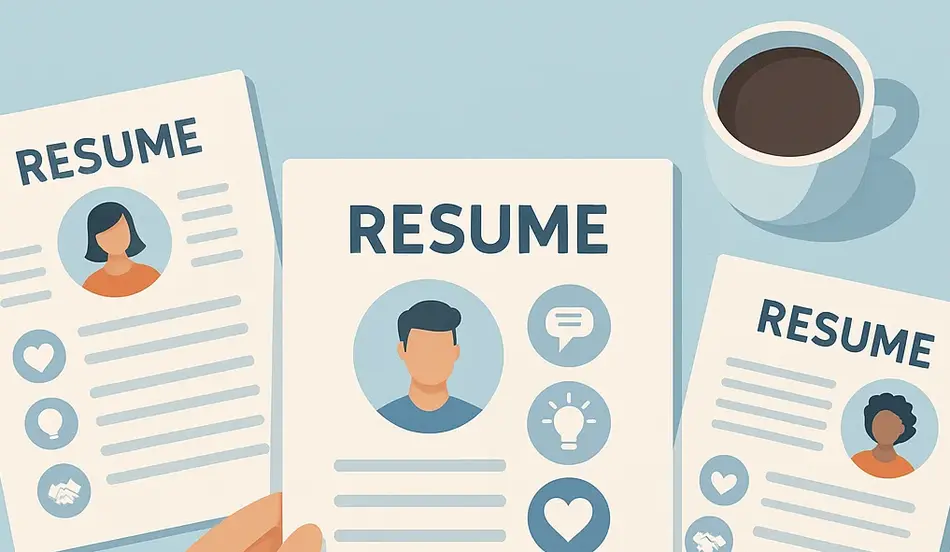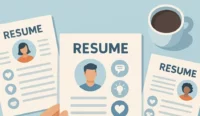In 2025, employers aren’t just hiring for technical expertise—they’re hiring for how well you work with people, manage pressure, and adapt to fast-changing environments. That’s why soft skills are more in-demand than ever.
But here’s the problem: most candidates list soft skills without proving them. Words like “team player” and “detail-oriented” are everywhere—and mean nothing without context. This article shows you how to showcase your soft skills in a way that actually convinces employers.
Why Soft Skills Matter More Than Ever
With the rise of hybrid work, global teams, and AI collaboration, employers now prioritize candidates who can:
- Communicate clearly (especially in async setups)
- Adapt to change and learn continuously
- Solve problems creatively
- Lead and collaborate across cultures
- Manage their time and stress independently
Soft skills are the human edge that separates strong candidates from forgettable ones.
Top Soft Skills Employers Want in 2025
- Communication (written + verbal)
- Adaptability
- Emotional intelligence (EQ)
- Time management
- Collaboration
- Leadership
- Problem-solving
- Critical thinking
- Self-motivation
- Conflict resolution
The Wrong Way to Show Soft Skills
❌ Bad Example:
- Excellent team player
- Strong communicator
- Fast learner
These tell the recruiter nothing. They’re vague, overused, and unsupported.
The Right Way: Show, Don’t Tell
You need to demonstrate soft skills through achievements or context. Use resume bullets that prove those traits in action.
✅ Good Example:
- Coordinated with 6 departments to launch a new onboarding program, improving new hire satisfaction scores by 34%
- Resolved client escalations across time zones using calm, solutions-first communication
- Led a cross-functional task force during a rebrand, adapting project timelines to shifting goals and feedback
Where to Include Soft Skills
1. In Your Summary
Mention soft skills that are central to your success—and back them up with quick proof.
Example:
“Adaptable marketing strategist with a track record of leading global teams and improving client retention through transparent communication and creative problem-solving.”
2. In Bullet Points (Experience Section)
This is the best place to show soft skills in context. Link each trait to an outcome or challenge.
Examples:
- Negotiated delivery deadlines with international vendors, reducing project delays by 40%
- Trained and mentored 3 new analysts, helping them onboard quickly and reduce early errors by 25%
3. In a Dedicated ‘Soft Skills’ Section (Optional)
This works best for junior candidates or career changers who want to call attention to interpersonal strengths.
Example:
Core Soft Skills:
- Adaptability | Conflict Resolution | Cross-Team Communication | Self-Management | Creative Thinking
Phrases to Avoid (And What to Say Instead)
| Overused Phrase | Better Alternative Example |
|---|---|
| Team player | “Collaborated with UX and Dev teams to reduce churn by 19%” |
| Strong communicator | “Delivered weekly updates to 5 stakeholders across regions” |
| Fast learner | “Mastered Salesforce CRM in 2 weeks to lead client demos” |
| Detail-oriented | “Audited 150+ expense reports with 98% accuracy” |
Final Tips
- Quantify when possible (e.g., how many people, what impact?)
- Use active verbs (led, resolved, collaborated, adapted)
- Tailor to the role—some jobs prioritize leadership, others collaboration
- Get feedback from colleagues to help uncover your real strengths
FAQs: Soft Skills on Resumes
Q1: Can I just list soft skills in a separate section?
Yes, but it’s much more effective to demonstrate them within your work experience. A separate list is helpful for keyword scanning, but real impact comes from context.
Q2: What’s the best way to show emotional intelligence on a resume?
Describe situations where you resolved conflict, led teams with empathy, or adapted your approach based on stakeholder needs.
Q3: How many soft skills should I include?
Focus on 3–5 that are most relevant to the job you’re applying for. Prioritize quality over quantity.
Q4: Do I need to tailor my soft skills for each application?
Yes. Use the job description to identify which soft skills the employer values, and tailor your resume accordingly.
Final Thoughts
Soft skills can’t be measured with a certification, but they absolutely impact how well you perform. In 2025, resumes that show emotional intelligence, collaboration, and adaptability will rise above those that simply list buzzwords.
Don’t just say what you’re good at—prove it with how you’ve done it.






